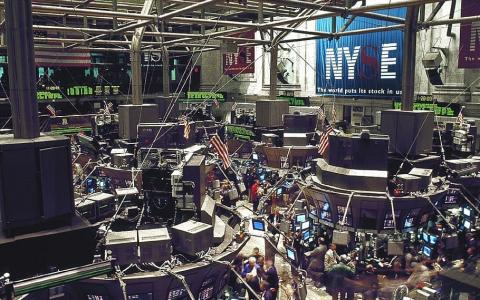
Younger investors have never experienced a real market crash in their adult lives. In their world, stocks go up, which makes the recent wave of short-term speculation so seductive.

Most advisors, on the other hand, have a longer-term investment orientation. We look for good companies to prove their worth over time and for diversification to smooth returns. There are few market experiences worse than concentrating all your capital on one or two ideas that start promising and then ultimately explode.
Morningstar recently interviewed two internal portfolio managers for their thoughts on what advisors can tell investors in any age bracket who get caught in the market frenzy. Your clients may trust the long view but they might still have friends urging them to take a walk on the wild side. And then there are their children.
The interview follows.
What happened with GameStop and other similar stocks recently in markets?
John Owens: Companies like GameStop and AMC Entertainment, which had already been struggling for some time, were hurt by the pandemic, and their stocks suffered for it. Then, suddenly we saw these stocks spike tremendously, then fall spectacularly. It's like watching the price of any speculative asset, like Bitcoin—the market can bounce around without much reason.
Specifically fueling the speculation around stocks like GameStop were individual traders. Not just any individuals. In fact, we see two trends here. First, social media like Reddit's WallStreetBets and other platforms drove much of the trading on GameStop, according to reports. Some sought to squeeze short-sellers, while others were just hopping on a fast-rising stock in hopes it would keep going.
The other trend is the rise of cheap trading and apps like the one from Robinhood Markets, Inc., which adds gamification elements that we believe encourage more trading, especially among younger, inexperienced traders.
Consider this description of Robinhood by one 18-year-old: “You’re able to put it on your homescreen and flip between Instagram and Snapchat; it doesn’t feel as serious as it used to … . It’s just an app you open up on your phone, there’s graphs, and numbers, and it’s easy to understand and learn really quickly,” Zane Bannink, a high school senior in Wisconsin, told The Wall Street Journal. That doesn't sound like a formula for success for a long-term investor.
John, what are the implications for investors?
JO: Well, we don't see major risks at this point for investors, but this is an unfortunate introduction to the market for a new generation.
Regarding risks, these are small stocks that, even after rising 1,000% or more, don't constitute much of the U.S. market. Assuming their prices return to more normal levels, they won't become part of major indexes. We expect these to be blips that don't affect most investors.
That said, we're somewhat concerned about the attitudes of some market participants, who seem to view stocks as get-rich-quick schemes. This perhaps started recently with the atmospheric rises of Bitcoin and Tesla stock, turning some folks into millionaires (at least on paper). Now there seems to be a hunt for the next pot of gold at the end of the rainbow. A Yahoo Finance-Harris Poll estimated that 28% of Americans bought a viral stock in January 2021—9% buying GameStop alone—with an average investment of $8,533.
We tend to see that type of next-pot-of-gold thinking rise just before a major market correction. That's not to say this latest activity points to an imminent crash—to say so would itself be speculation.
Still, we’ve seen time and time again that many folks eventually end up losing everything when joining a speculative frenzy (e.g., Tulip mania in 17th Century Holland, and in the U.S., the Roaring '20s, Nifty Fifty, dot-com bubble, Great Recession, etc.). This is especially true for novices buying on margin. To make matters worse, many losers often swear off making future investments and miss the potential for building wealth slowly with a more prudent approach.
My introduction to the equity market was quite different from this generation's Robinhood and Reddit users. My grandfather introduced me to stock investing. He favored blue-chip stocks. We used to go to the mailbox to pick up dividend checks and then go to the bank together to deposit them. He’d periodically check the stock quotes in the newspaper, but really it was the dividends that mattered to him. Well before spreadsheets and the internet, he used to meticulously record in his journal all of his dividends for each company and then tally the grand total for the year and compare it to the prior years. He treated a stock like a stake in a business. With few exceptions, he was a long-term, buy-and-hold investor.
Today, I feel investors would be better off learning about the market in this manner, versus from Reddit users offering them get-rich-quick schemes or from a Robinhood app encouraging them to frequently trade stocks (not to mention options and cryptocurrencies) through the promise of free trades, push notifications, and bursts of digital confetti.
Mike, how might this affect investors in our multi-asset portfolios, where we often hire third-party asset managers to oversee assets within our portfolios?
Mike Stout: We’re watching the Reddit WallStreetBets circus from a distance, certainly not participating, with an eye toward assessing whether this social-media-driven volatility is a new risk in the markets, or just the same thing we’ve seen in past manias (and 1999 Yahoo chat rooms) in a 2021 wrapper.
When hiring a third-party asset manager or fund, we look for portfolio managers who have years of experience and follow investment philosophies grounded in fundamental research, with the ultimate aim of figuring out companies’ true values. Neither they nor we are in the business of investing on the thesis that a greater fool might pay an even higher price for a moribund company’s stock bid up by a frenzied crowd—much less when the underpinning is a technical dislocation like a short squeeze.
Do you expect this type of frenzied traded to be regulated?
MS: I don’t know if regulation will follow—that's a question for lawyers and policymakers. And of course, we don't have any special information on this event and therefore can't comment directly on it. Generally speaking, market manipulation is already against the law. Pump and dump is already prohibited. Collusion (even in a chat room) is already illegal. Regulators might take a look at the practice of brokerages selling their order flows to high-frequency trading firms, although Robinhood has cited a $3 billion margin call from the Depository Trust & Clearing Corp., which clears and settles trades, as the reason it decided to halt trading in GameStop.
How will Morningstar Investment Management navigate through this?
JO: At Morningstar Investment Management, we won’t treat the market like a game of Candy Crush. Rather, we’ll stick to our enduring philosophy and disciplined approach to investing. Just like my grandfather, we’ll aim to build wealth for our clients, not by frequently trading, but by seeking to be long-term owners of profitable and cash-generative businesses. That said, if the irrational behavior of others creates opportunities for disciplined, long-term investors like us, we will certainly try to seize them! From Warren Buffett’s 1987 letter to Berkshire Hathaway shareholders:
But, like Cinderella at the ball, you must heed one warning or everything will turn into pumpkins and mice: Mr. Market is there to serve you, not to guide you. It is his pocketbook, not his wisdom, that you will find useful. If he shows up some day in a particularly foolish mood, you are free to either ignore him or to take advantage of him, but it will be disastrous if you fall under his influence. Indeed, if you aren’t certain that you understand and can value your business far better than Mr. Market, you don’t belong in the game. As they say in poker, “If you’ve been in the game 30 minutes and you don’t know who the patsy is, you’re the patsy.“
Investing is challenging and markets are competitive. My colleagues and I aren't right on every call we make, but we spend hours of dedicated research, analysis, and reflection on every investment we make. We also employ our education, credentials, and years of experience, not to mention a small army of analysts at our disposal, in this endeavor. Even so, we humbly enter the ring (i.e., markets) with great respect for our opponents (i.e., other investors) while striving to maintain our independence. If individual investors are eager to step into the fray, so be it. But generally we think times like these underscore why they (especially novices) should consider hiring a financial advisor who can recommend an appropriate, professionally managed portfolio that will help them reach their financial goals.
This article is just a taste of Morningstar IM's integrated research and advisor support. Want more? The VIP Messenger will set you up.



